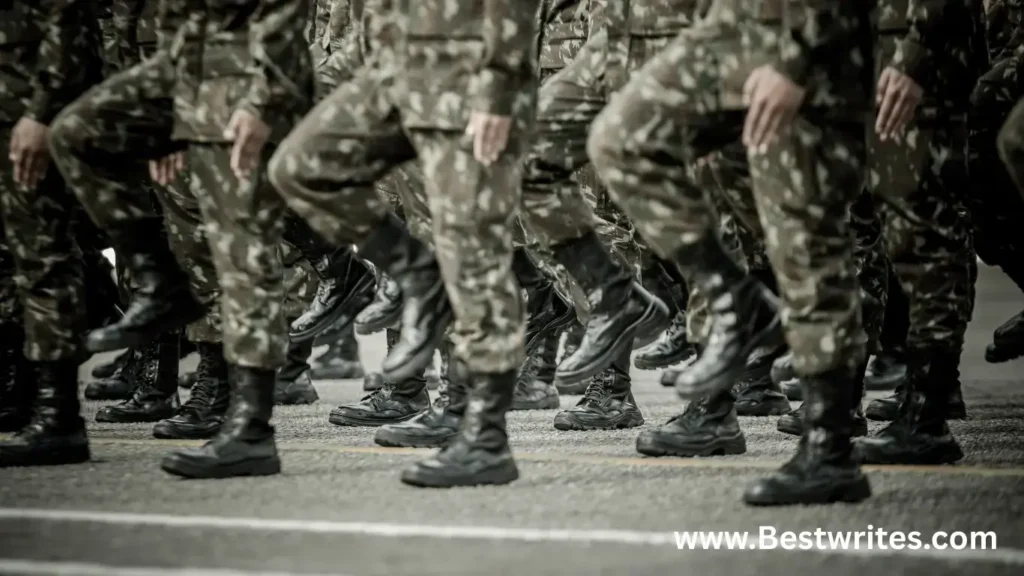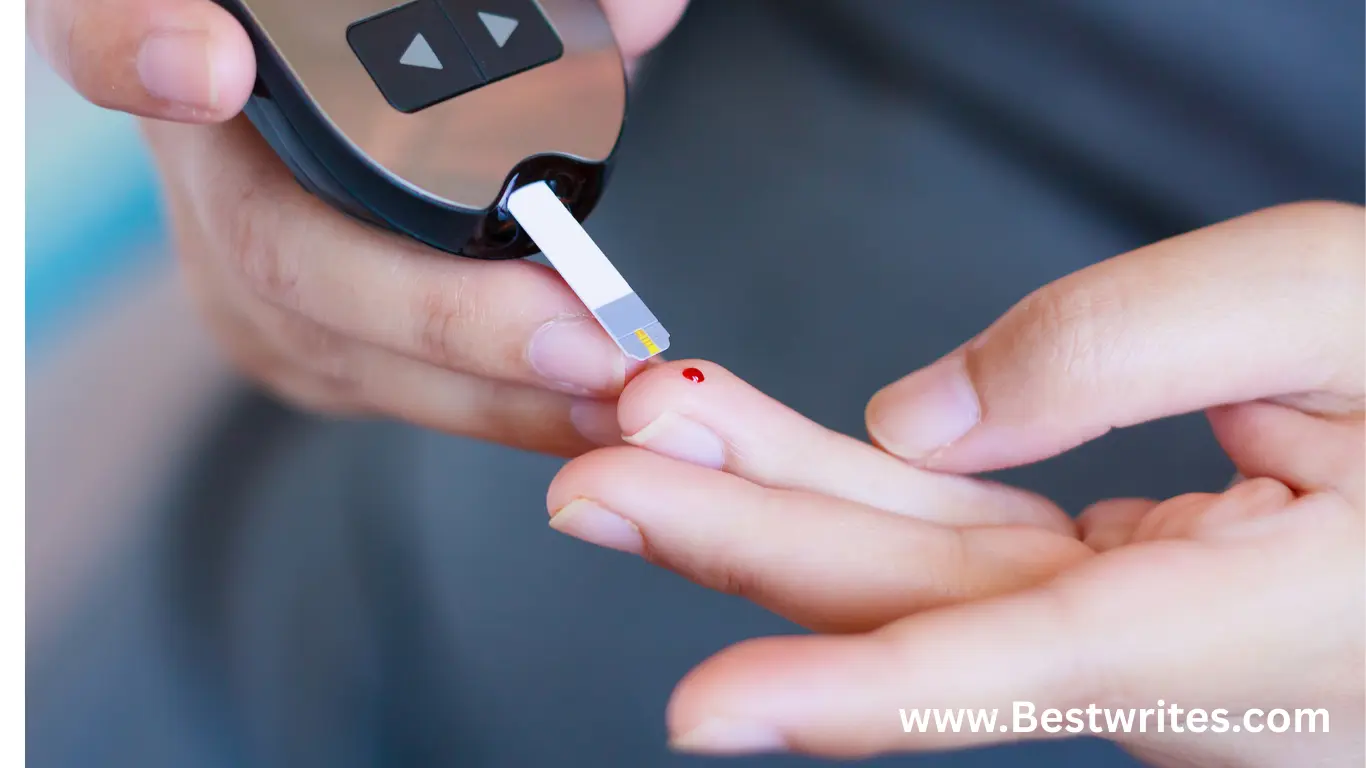Are you looking for answers to your questions Can Diabetics Join The Military eligibility and how to join the U.S. Army with diabetes? In this blog, we will provide authentic and informative details of all your queries related to diabetes recruitment requirements in the U.S. military for individuals with diabetes.
Diabetes is a chronic condition that affects the body’s ability to regulate blood sugar, and it comes in different forms, primarily type 1 and type 2. Military service, on the other hand, demands rigorous physical fitness, endurance, and the ability to handle stressful and high-pressure situations. Naturally, this raises an essential question for aspiring recruits who live with diabetes: can they meet the demanding medical and physical standards required for enlistment? The answer isn’t a simple yes or no. Eligibility often depends on the type of diabetes, its severity, how well it is managed, and the specific policies of each military branch, making it crucial to understand the rules before pursuing a military career.
Understanding Diabetes Recruit Requirements U.S. Military:
There are two primary types of Diabetes:
- Type 1 diabetes, where the body’s immune system attacks insulin-producing cells, requires lifelong insulin therapy.
- Type 2 diabetes occurs when the body becomes resistant to insulin or doesn’t produce enough.
Both types can affect overall health, energy levels, and daily functioning, making them an important factor when considering military enlistment with diabetes. Understanding the differences helps aspiring recruits know how their condition might impact eligibility.
General Military Medical Standards for Enlistment:
The military maintains strict medical standards to ensure that all service members are fit for duty. Recruits must meet requirements for cardiovascular health, endurance, and the absence of chronic conditions that could interfere with training or combat. Conditions like diabetes in military recruits are carefully evaluated because they can influence physical performance, the ability to deploy, and long-term health management. Each branch of the armed forces has its own diabetes policy
Why is diabetes a Concern for the Armed Forces?
Diabetes raises specific concerns for the military due to health risks, medication requirements, and combat readiness. Uncontrolled blood sugar can lead to complications such as fatigue, vision problems, or cardiovascular issues, which can hinder performance during rigorous training or missions. Additionally, service members with diabetes may require constant access to insulin or other medications, which could be challenging in remote or combat environments. For these reasons, the armed forces carefully assess recruits with Type 1 diabetes or Type 2 diabetes to ensure they can maintain operational effectiveness while managing their condition.
Can Diabetics Join the Military?
It’s a very sensitive topic that needs to be explained properly; therefore, we explain it in multiple sections so the people who are interested in joining the Army with a diabetic background get maximum assistance.
1. Current Policies in the U.S. Military:
The U.S. military has strict medical standards that generally disqualify individuals with chronic conditions that could affect their performance or safety. Diabetes and military service fall under these medical considerations, and recruits are evaluated on how well their condition is managed, their ability to maintain health in demanding environments, and potential risks during training or deployment. While policies vary slightly among branches.
2. Differences for Type 1 vs. Type 2 Diabetics:
Type 1 diabetes:
which requires daily insulin injections, is almost always a disqualifying condition for military enlistment due to the intensive management it requires and potential complications in high-stress or combat situations.
Type 2 diabetes:
however, may be considered on a case-by-case basis, especially if it is well-controlled through lifestyle changes, oral medications, and regular monitoring. This distinction plays a critical role for aspiring recruits with diabetes who hope to pursue a military career.
3. How Insulin Dependence Impacts Eligibility?
Insulin dependence significantly affects eligibility because the military requires service members to be deployable in any environment without needing frequent medical intervention. Recruits who rely on insulin may face restrictions, as managing doses, monitoring blood sugar, and preventing hypoglycemia in remote or combat zones can be challenging.
Medical Waivers and Special Cases:
How Medical Waivers Work in the Military?
Medical waivers allow individuals with certain disqualifying conditions, including diabetes, to be considered for enlistment on a case-by-case basis. Applicants must provide detailed medical records, evidence of stable health, and proof that their condition will not interfere with training, duties, or deployment. Each waiver is carefully reviewed by military medical personnel, and approval is not guaranteed, as the primary concern is safety and operational readiness.
Conditions Where Diabetics May Still Serve:
While Type 1 diabetics are rarely granted waivers due to insulin dependence, some non-insulin-dependent Type 2 diabetics with well-controlled blood sugar may be considered. Eligibility often depends on factors like recent A1C levels, absence of complications, and the ability to meet all physical requirements. In some branches, diabetics may qualify for non-combat or administrative roles where rigorous physical demands are reduced.
Alternatives for Diabetics Who Want to Serve:
According to deployment rules for diabetics in the U.S. military, not all individuals with diabetes are eligible for active combat roles, but there are still meaningful ways to contribute to the military or national defense. Civilian roles supporting the military, such as administrative positions, technical support, logistics, and cybersecurity, allow diabetics to be part of operations without the intense physical or deployment demands. Government defense jobs with no strict medical restrictions provide another pathway, enabling individuals to work in intelligence, research, procurement, or policy roles. These positions often require specialized skills rather than peak physical fitness, making them accessible for those with managed diabetes.
Additionally, volunteer and community service opportunities, such as disaster response, veterans support programs, or nonprofit defense-related initiatives, offer a chance to serve the nation while accommodating health limitations. These alternatives allow diabetics to make a tangible impact, contribute to national security, and gain valuable experience even if active-duty enlistment isn’t possible.
Branch-Specific Rules & Policies:
There are different diabetic support roles in the U.S. military, which we will address department by department. Have a look:
1. U.S. Army Diabetes Requirements:
The U.S. Army maintains strict medical standards, generally disqualifying individuals with Type 1 diabetes or insulin-dependent Type 2 diabetes. Non-insulin-dependent diabetes military USA rules may be considered on a case-by-case basis if their condition is well-controlled and they can demonstrate full physical readiness. The Army prioritizes operational effectiveness, ensuring all soldiers can deploy and perform demanding tasks without medical limitations.
2. Navy Policies on Diabetes:
The Navy diabetes enlistment rules follow similar medical guidelines, disqualifying recruits with chronic insulin-dependent diabetes due to the challenges of managing blood sugar on ships or submarines. However, non-insulin-dependent Type 2 diabetics may be eligible with thorough medical documentation proving controlled blood sugar levels and the ability to meet rigorous physical requirements.
3. Air Force Regulations:
The Air Force diabetes requirements have stringent diabetes restrictions, generally prohibiting enlistment of individuals with Type 1 diabetes or those requiring insulin. Non-insulin-dependent Type 2 diabetics may apply under exceptional circumstances if their condition is stable and they pass all medical and fitness assessments.
4. Marines & Coast Guard Stance:
The U.S. Marine Corps and Coast Guard diabetes enlistment typically disqualifies recruits with any form of insulin-dependent diabetes. Waivers are rare and usually only considered for non-insulin-dependent Type 2 diabetes with exceptional health management. Both branches prioritize combat readiness and the ability to operate in extreme conditions, where consistent medical access may be limited.
5. International Differences:
Globally, policies vary, as in the UK, most diabetics are disqualified from front-line military roles, though non-insulin-dependent cases may be assessed individually. Canada and other countries follow similar guidelines, emphasizing safety, deployability, and physical readiness, while sometimes allowing waivers for well-managed Type 2 diabetes. Aspiring recruits should always review the specific branch and country policies before applying.
FAQs: Can Diabetics Join the Military?
Can I join the U.S. military if I have Type 1 diabetes?
Generally, individuals with Type 1 diabetes are disqualified from enlistment due to insulin dependence and the challenges of managing blood sugar in demanding environments. Waivers are extremely rare.
What about Type 2 diabetes?
Non-insulin-dependent Type 2 diabetics may be considered on a case-by-case basis if their condition is well-controlled, with thorough medical documentation and proof of fitness for duty.
How does the waiver process work?
Medical waivers require detailed health records, lab results, and physician evaluations. The military reviews each case individually to ensure the condition won’t compromise safety or operational readiness.
If I’m already in the military and get diagnosed with diabetes, will I be discharged?
It depends on the type and severity of diabetes, how it affects performance, and the branch’s policies. Some cases may be managed without discharge, especially if the condition is mild or non-insulin-dependent.
Are there specific military jobs diabetics can do?
Yes. Diabetics may qualify for non-combat or support roles, administrative positions, technical jobs, and other assignments where rigorous physical demands or deployment risks are limited.
Final Thoughts:
Joining the military with diabetes can be challenging, but it is not entirely impossible for those with well-managed Type 2 diabetes. Understanding branch-specific policies, medical standards, and the waiver process is crucial for aspiring recruits. While Type 1 diabetics face stricter limitations, alternative pathways such as non-combat roles, technical positions, or civilian support jobs offer meaningful ways to serve. Proper preparation, consistent health management, and awareness of available options can help diabetics contribute to the military or national defense in a safe and impactful manner. Knowledge and planning are key to pursuing a military career responsibly.







